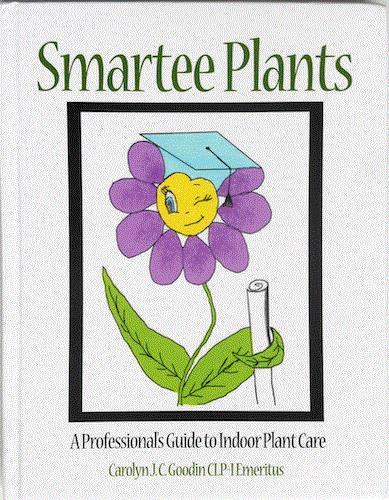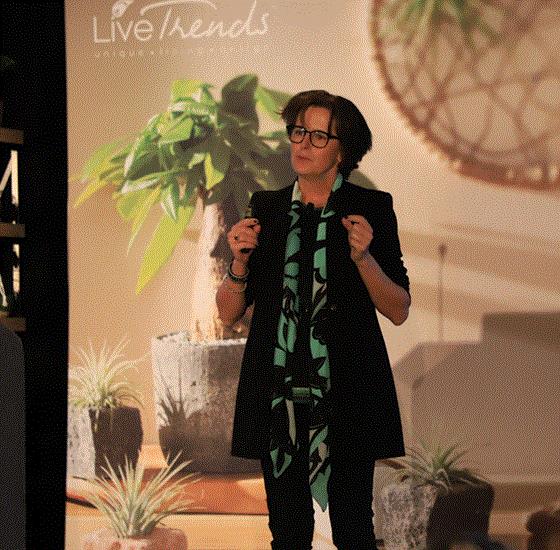Just a Reminder
I am off for the month of October. I’ve brought in some excellent and very well-qualified individuals to fill in while I am gone. See you in November!
The Trickle-Down Effect of Order Cancellations
This one comes to you from Jos de Boer, Marketing Manager at ForemostCo Inc. Jos has more than 12 years of experience in B2B marketing and although hailing from The Netherlands, would be reluctant to ever leave the Sunshine State.
Last minute cancellations of orders and unpredictable fluctuations in demand often mean that young plant producers are left with large amounts of unsellable product. Not only does this result in high levels of wasted resources such as land, energy, labor and fuel, but it also means that future availability of product will be significantly affected.
Like many other industries, financial risk is transferred down the supply chain to reduce one’s exposure. The trickle-down effect in our industry starts with retailers cancelling orders on growers, growers then cancelling on young plant producers, who in turn cancel their orders with the tissue culture labs and stock producers. This escalation down the supply chain could have multi-year consequences on the future availability of product.

Future availability is based on expected demand and orders in the system to operate stock farms as efficiently as possible. Once cancellations start, young plant producers and TC labs take this as a signal of market weakness and start reducing supply. This is an issue because due to the nature of the foliage industry, it takes years to build stock for increased demand. Never have we felt this more than during the pandemic when we had customers screaming for anything tropical. We would have loved to fulfill the demand, but it simply was not possible to increase production in such a short window of time.
This leads me to ask two open questions as we continue to experience unpredictable times. Where does this lead and how do we end this cycle of production and demand curves not lining up? If there are clear signs market demand will recover next year then stock producers may refrain from reducing their production. If there is no clear end to this slow down the obvious next step is for stock growers to reduce their production, which will affect availability for years. What can be done to better shore up commitments from big box, grocery stores and large retailers for the future of our industry?
Something else to consider is how the European market factors into all of this. This current year has not been kind to European growers who are facing an incredible number of cancellations due to inflation, outrageous energy prices and other macroeconomic factors. Many are on the brink and do not know whether they can weather this storm. That being said, it’s impressive to know that most European growers, even though their market has dried up, are honoring their commitments to purchase young plants from producers around the world. According to Sjef van der Velden, a grower of young and finished plants in The Netherlands, “it is about looking at the long-term possibilities and working together. This is a close industry that has been around for a long time and we will move beyond the current struggles soon enough. We need to be ready for the next opportunities.”
Have a question or comment for Jos? Drop him a note at jos@foremostco.com. Or, if you’d like to respond in the next edition of Tropical Topics, send your comment to me at ewells@ballpublishing.com.

A Dieffenbachia Not for the Corner Table
Dr. Richard Criley returns for two contributions this week. Richard is Emeritus Professor of Horticulture at University of Hawaii, whose research embraced the physiology of tropical ornamentals flowers, foliage plant production, growth regulators, production of ornamental Hawaiian native plants and alternative trees for Hawaii landscapes.
Not for the faint of heart or that little table in the corner, this large-leaved Dieffenbachia longispatha was originally mistaken for a banana plant in the building’s lobby. Like other dieffenbachias, it tolerates low-light conditions, likes its water and is happy to keep on adding to its leaf area. It can become a little top heavy, but can be headed back and will throw basal shoots.

Smartee Plants
As a guest contributor, I guess I’m allowed to tout our own graduates. Carolyn Goodin was an M.S. student of mine at the University of Hawaii several decades ago and went on to found her own interiorscape maintenance business. As a result of her experiences she wrote a book, the “Smartee Plants” of this column’s title.

Although the target audience is interior maintenance technicians, the book also answers the kinds of questions that many garden centers and plant retailers hear. How many times have you been asked, “How often/much do I water this plant?” or “Does this do OK inside?” Smartee Plants answers these questions with the why as well as the how. People talk to their plants, but Carolyn explains how plants talk back with their leaves.
Her presentation is divided into a section on the science of plant care and another on practical considerations. The first includes four chapters on water relations among 18 chapters treating everything from environment, nutrition, growing media, plant diseases and pests and basic knowledge of how plants grow. The practical considerations chapters include another on watering (how, how much, how often) as well as fertilizing, pruning and shaping, turning and rotation (these are not the same) and caring for orchids and other specialty plants. “Smartee Plants” was published by Dorrance Press, in 2018. Have a question or comment for Richard? Drop him a note at criley@hawaii.edu.

TPIE Update!
FNGLA’s COO Linda Adams sent along an update on the keynote and educational sessions happening at the next TPIE, to be held January 18-20 in Tampa, Florida.
Back by popular demand and because she’s just so good, Christine Boland will be the keynote speaker for the 2023 TPIE Opening Session. Sponsored by Live Trends Design Group, the presentation is a focus on “Guiding the Future” with Christine sharing current societal and human behavior and how to make use of that information in terms of products and services.
“When you understand the spirit of the time, you will see what drives people, and if you know what drives people, anticipating their wishes and desires will become the next obvious step,” says Christine.

We’re excited that Christine has agreed to lead a separate session at TPIE, during which she will share her Design Language Forecast for 2023/2024. This takes the information shared in the TPIE Opening Session and applies it at a micro-level to design elements such as fabric, color, textures and more.

TPIE’s educational sessions were very popular in 2022, especially for many of the new people entering into the plant business. With that in mind, we have added an additional track of sessions that offers five additional business topics and experts to learn from while at TPIE. Topics cover the gamut from consumer trends, design trends, new ways to stay connected with customers, retail technology and much more. And, of course, we will be offering the ever-popular TPIE Road Show, visiting exceptional nurseries in central Florida. Linda Reindl on FNGLA’s team is the one who can provide specifics related to the educational sessions and nursery tour. Contact her at lreindl@fngla.org.
It’s Wage & Benefit Survey Time!
Do you offer benefits? Do you pay your staff (um, yes)? Do you know how your wages and benefits package stack up compared to others in your state or from across the nation?
Then the 2022 Wage & Benefit Surveys from GrowerTalks/Green Profit are a must for you to fill out. If you’re a grower, retailer or even a combo of the two, you’ll be helping out yourself and your colleagues by answering the following surveys:
-
For growers, find the survey HERE.
-
For retailers, find the survey HERE.
As an incentive for helping us out, you’ll be entered into a random drawing to win a Yeti Tundra 45 Hard Cooler (a $325 value!). The deadline to fill out the survey is next week—October 28, 2022.
(Please note that if you’re a grower-retailer, we ask that you fill out both surveys. Hey—it’s double the chance to win the cooler!)
The results will appear in the December issue of GrowerTalks and the January issue of Green Profit.
We’ve been conducting the annual Wage & Benefit Survey for 27 years for GrowerTalks and 14 years for Green Profit. And our readers always highly anticipate and regard the information we provide from these surveys, so we really appreciate you helping us out … and for helping out your peers in the industry, too!
Comments, questions or news to share? Just drop me a line at ewells@ballpublishing.com.

Ellen Wells
Senior Editor
Green Profit
This edition of Tropical Topics was sent to 29,590 loyal readers!
If you're interested in advertising on Tropical Topics, contact Kim Brown ASAP!